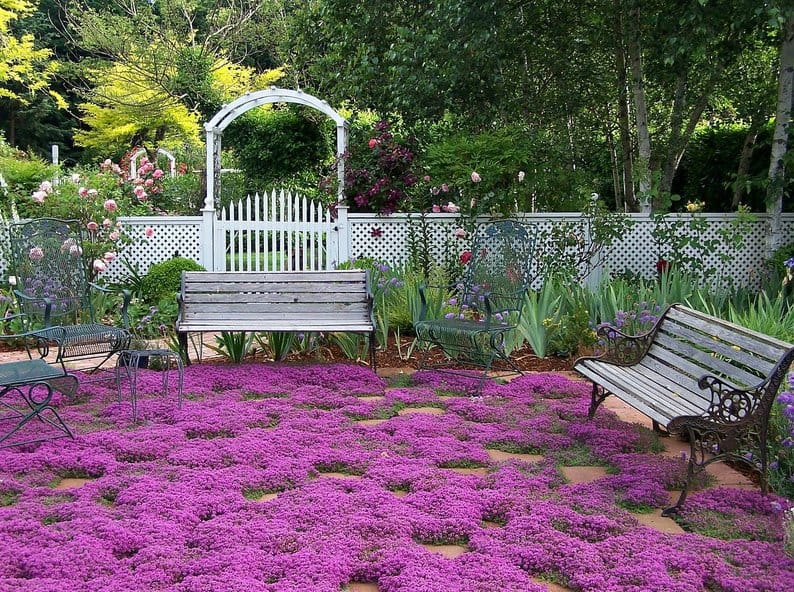
38. Creeping Thyme
Another excellent ground cover, it’s hard to beat Creeping Thyme’s versatility and delicate beauty. A very hardy perennial, Creeping Thyme spreads similarly to a mint through a trailing, horizontally vining habit. It can cover large areas relatively quickly and is also easy to start from seed over large areas.
It most commonly has abundant purple flowers, which make a beautiful backdrop for any other flowers it surrounds. It can’t tolerate full shade but can fill many other hard to cover areas. If you love the magenta shade, this is the flower for you!
